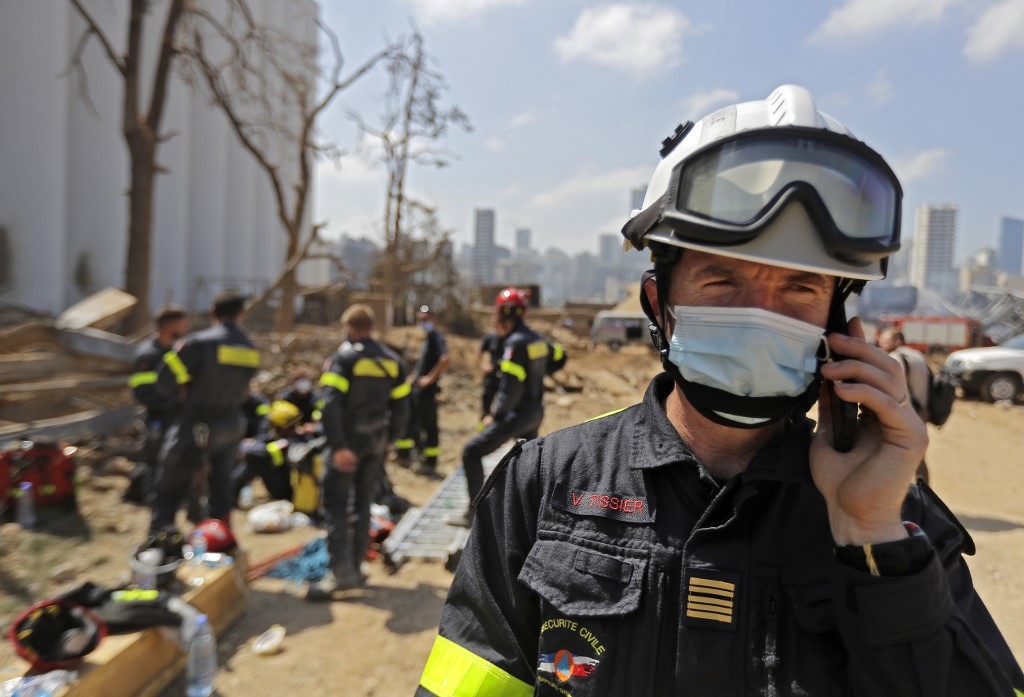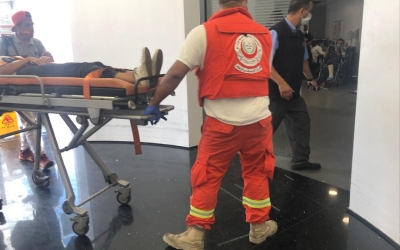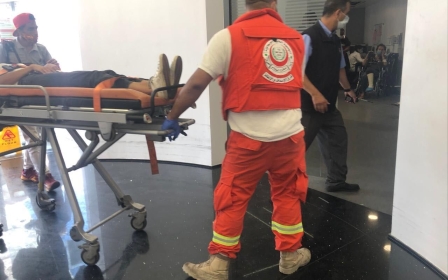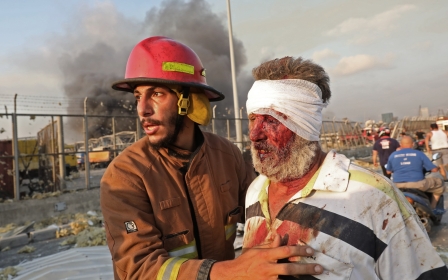Beirut blast: UN in desperate plea for Lebanon aid

The United Nations has issued desperate pleas for food and medical aid after a blast on Tuesday ripped through Beirut, leaving up to 300,000 people homeless.
The UN's World Food Programme (WFP) warned that the port explosion will severely impact Lebanon's ability to feed people as the country imports 85 percent of its food.
The World Health Organisation (WHO) has appealed for countries to donate at least $15m to help cover the country's health needs.
The WHO said the blast, which killed more than 150 people and injured at least 5,000, had destroyed 17 containers holding WHO medical supplies, including personal protective equipment (PPE).
Up to 300,000 people have been displaced from their homes and the need for food or shelter "also risks accelerating the spread of Covid-19 and the outbreak of other diseases," said Iman Shankiti, the WHO representative to Lebanon.
New MEE newsletter: Jerusalem Dispatch
Sign up to get the latest insights and analysis on Israel-Palestine, alongside Turkey Unpacked and other MEE newsletters
Five hospitals in the area are not functioning to full capacity, with the WHO reporting that many local health centres are either damaged or out of action.
The UN agencies plea came after the US embassy in Lebanon on Friday pledged to provide $17m in disaster aid.
Other countries, including France and the United Kingdom, have also pledged to provide assistance as Beirut attempts to rebuild itself.
Even before the port explosion, local health officials had reported a marked rise in coronavirus cases across Lebanon, after the country eased lockdown restrictions.
The country's economic crisis has crippled its ability to respond to the pandemic.
Last month, the American University of Beirut (AUB) fired at least 500 people from its medical centre, one of the Middle East's best health facilities.
AUB president Fadlo Khuri told Reuters in May that around a quarter of the university's staff would lose their jobs as the financial meltdown and the coronavirus pandemic made their impact on the institution's finances.
At the time, Khuri called the country's crisis one of the biggest threats to AUB since its foundation in 1866.
Middle East Eye delivers independent and unrivalled coverage and analysis of the Middle East, North Africa and beyond. To learn more about republishing this content and the associated fees, please fill out this form. More about MEE can be found here.





